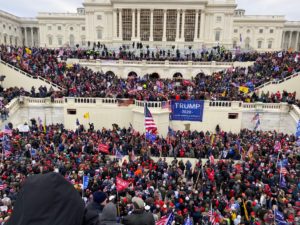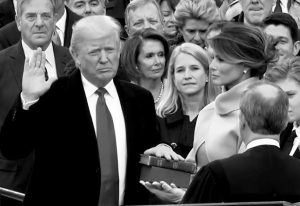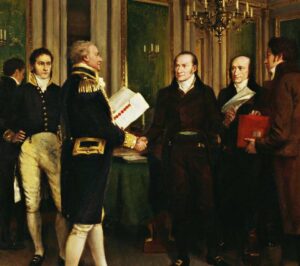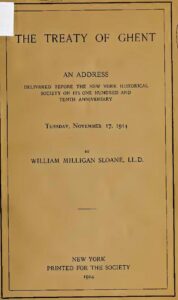Podcast: Play in new window | Download
Enforcing Insurrection Clause Against Former President Donald Trump
On December 19, Colorado’s top court became the first in the nation to rule that Donald Trump is disqualified from holding office because he engaged in insurrection against the Constitution on January 6, 2021. With this ruling, the Colorado secretary of state will exclude Trump’s name from the state’s Republican primary ballot.
Voters in three other states are also challenging Trump’s eligibility to appear on primary ballots based on the 14th Amendment’s Disqualification clause. It disqualifies from office any individual who has taken an oath to support the Constitution and then “engaged in insurrection or rebellion against the same.”
In last week’s Colorado decision, a four-justice majority wrote that they were “mindful of our solemn duty to apply the law, without fear or favor, and without being swayed by public reaction to the decisions that the law mandates we reach.” As the other three cases are being decide, some are concerned that enforcing the constitutional accountability clause could escalate political violence.
In a recent Newsweek editorial, Praveen Fernandes emphasized the importance of judges heeding the warning of legal scholar Sherrilyn Ifill. She notes that when judges have hesitated in the past to apply the provisions of the 14th Amendment, it has had the effect of undermining our democracy’s promise.
Guest – Praveen Fernandes serves as the vice president at the Constitutional Accountability Center in Washington, DC. The center is a public interest law firm and think tank committed to realizing the progressive ideals embedded in the Constitution’s text and history. Praveen brings to the table nearly two decades of experience working on issues related to law, democracy, and civil rights, both within and outside the government.
—-
Legacy of Peace and the Treaty of Ghent
On February 17, 1815, the United States and Great Britain both ratified the Ghent Treaty in Washington, officially ending the War of 1812. That year, David Low Dodge founded New York Peace Society, the nation’s first formal peace movement. It was followed by the Massachusetts Peace Society. England founded a peace movement around the same time, with Switzerland and France following suit in 1821 and 1830, respectively. Most other European countries established peace movements after 1850.
Successful nonviolent protest strategies in the U.S. are most often associated with the Civil Rights Movement in the South during the 1950s and ‘60s. Leaders such as Ella Baker, Martin Luther King, Jr., A.J. Muste, Bayard Rustin and John Lewis dedicated their lives to th philosophy of non-violence and studied its successful use by Mohandas Gandhi to free India from Britain’s colonial grip.
But as war and carnage wages in the Middle East and in Ukraine, and as political violence is on the uptick in the U.S., peaceful protests don’t seem to be as impactful as in earlier decades. Law & Disorder takes a look at the state of peace studies and peace actions in the United States and abroad.
Guest – Matt Meyer, historian and organizer, serves as Secretary-General of the International Peace Research Association. It is the world’s leading consortium of university-based professors, scholars, students and community leaders. Matt is also the Senior Research Scholar of the University of Massachusetts/Amherst’s Resistance Studies Initiative and has been active with the War Resisters’ International and the International Fellowship of Reconciliation, and he serves on the A.J. Muste Institute board. The author/editor of more than a dozen books, Matt’s work focuses on 21st Century Decolonization, African Peace Studies, the Strategies and Tactics of Movement-building, the significance of support for political prisoners, and the Abolition of White Supremacy. SpiritofMandela
—————————–




